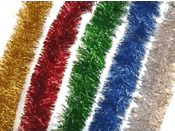I was asked today about the origins of the word worship. The person who asked was told by a highly-educated minister that “worship” is derived from an old English word, “word-skip”. Supposedly, “word-skip” means “word shaper” or “shaper of words”.
According to the Online Etymology Dictionary: worship comes from the Old English worðscip, wurðscip (Anglian), weorðscipe (West Saxon), “condition of being worthy, honor, renown”, from weorð (worthy), and -scipe, “state, condition of being”. The sense of “reverence paid to a supernatural or divine being” is first recorded in about 1300. The original sense is preserved in the title worshipful (c.1300). The verb to worship first appears in writing from about 1200. The word weorð comes from the Proto Germanic *werthaz (toward, opposite), which is possibly a derivative of Proto-Indo-European word *wert- (to turn, wind). from *wer- (to turn, bend).
The OED and the Collins Dictionary give the same etymology, and the OED lists the numerous ways worship was written in Middle English, including worðscipe, worðschipe, worðschepe, worþssipe, worþschip, wortscip, wortschyp, worsipe, worssipe, and so on.
The Dictionary of Word Origins says the worship originally meant “worthiness, distinction, credit, dignity” in Old English. Later is came to mean “respect or reverence”, and was used in religious contexts from the 13th century, and that is was used as a verb from the 12th century.
A related word is venerate, from the Latin venerāt- from venerārī/venerāre (to reverence, worship, adore), which comes from venus (beauty, love desire), from the Proto-Indo-European base *wen- (to strive after, wish, desire, be satisfied) [source]. This is also the root of the words for worship in Italian (venerare), Portuguese (venerar) and French (vénérer). The equivalent in Spanish is adorar or rendir culto a.
